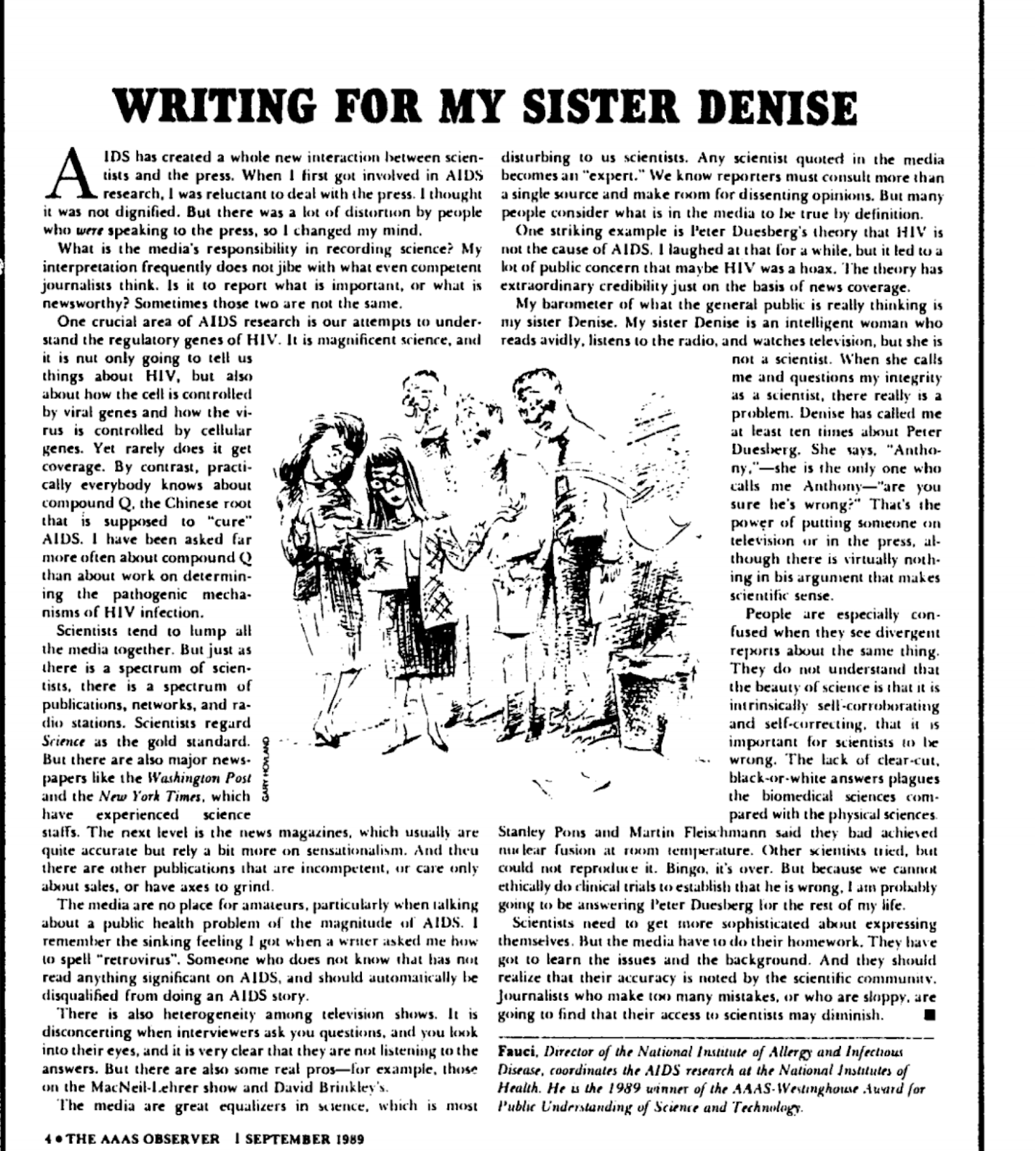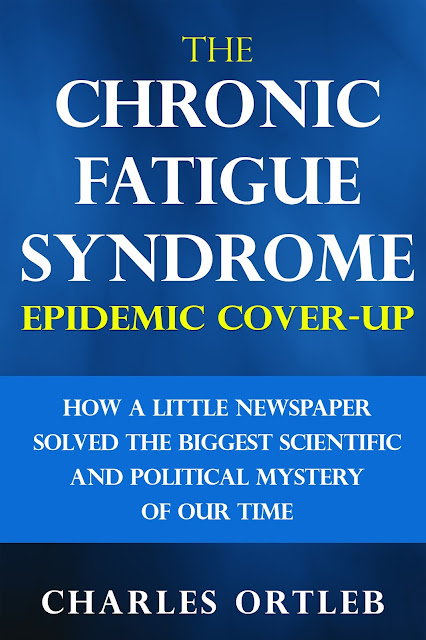The day Anthony Fauci told journalists they could lose their access to scientists.
The AAAS Observer, September 1989
From the September 1, 1989 AAAS
Observer
Writing for My Sister Denise
AIDS has created a whole new interaction
between scientists and the press. When I first got involved in AIDS research, I
was reluctant to deal with the press. I thought it was not dignified. But there
was a lot of distortion by people who were speaking to the press, so I
changed my mind.
What is the media’s responsibility in
recording science? My interpretation frequently does not jibe with what even
competent journalists think. Is it to report what is important, or what is newsworthy?
Sometimes those two are not the same.
One crucial area of AIDS research is our
attempts to understand the regulatory genes of HIV. It is magnificent science,
and it is not only going to tell us things about HIV, but also how the cell is
controlled by viral genes and how the virus is controlled by cellular genes.
Yet rarely does it get coverage. By contrast, everyone knows about compound Q,
the Chinese root that is supposed to “cure” AIDS. I have been asked far more
often about compound Q than about work on determining the pathogenic mechanisms
of HIV infection.
Scientists tend to lump all the media
together. But just as there is a spectrum of scientists, there is a spectrum of
publications, networks, and radio stations. Scientists regard Science as
the gold standard. But there are also
major newspapers like the Washington Post, and the New York Times,
which have experienced science staffs. The next level is the news magazines,
which usually are quite accurate but rely a bit more on sensationalism. And
then there are other publications that are incompetent, or care only about
sales, or have axes to grind.
The media are no place for amateurs, particularly
when talking about a public health problem of the magnitude of AIDS. I remember
the sinking feeling I got when a writer asked me how to spell “retrovirus”.
Someone who does not know that has not read anything significant on AIDS, and should
automatically be disqualified from doing an AIDS story.
There is also heterogeneity among
television shows. It is disconcerting when interviewers ask you questions, and
you look into their eyes, and it is very clear they are not listening to the
answers. But there are some real pros—for example, those on the McNeil-Lehrer show
and David Brinkley’s.
The media are great equalizers in science,
which is most disturbing to us scientists. Any scientist questioned in the
media becomes an “expert.” We know reporters must consult more than one source and
make room for dissenting opinions. But many people consider what is in the
media to be true by definition.
One striking example is Peter Duesberg’s
theory that HIV is not the cause of AIDS. I laughed at that for a while, but it
led to a lot of public concern that maybe HIV was a hoax. The theory has enormous
credibility just on the basis of news coverage.
My barometer of what the general public is
really thinking is my sister Denise. My sister Denise is an intelligent woman
who reads avidly, listens to the radio, and watches television, but she is not
a scientist. When she calls me and questions my integrity as a scientist, there
really is a problem. Denise has called me at least ten times about Peter
Duesberg. She says, “Anthony”—she is the only one who calls me Anthony—“are you
sure he’s wrong?” That’s the power of putting someone on television or in the
press, although there is virtually nothing in his argument that makes
scientific sense.
People are especially concerned when they
see divergent reports about the same thing. They do not understand that the beauty
of science is that it is intrinsically self-corroborating and self-correcting,
that it is important for scientists to be wrong. The lack of clear-cut
black-or-white answers plagues the biomedical scientists compared with the
physical sciences. Stanley Pons and Martin Fleishmann said they achieved
nuclear fusion at room temperature. Other scientists tried, but could not
reproduce it. Bingo, it’s over. But because we cannot ethically do clinical
trials to establish that he is wrong, I am probably going to be answering Peter
Duesberg for the rest of my life.
Scientists need to get more
sophisticated about expressing themselves. But the media have to do their
homework. They have got to learn the issues and the background. And they should
realize that their accuracy is noted by the scientific community. Journalists
who have made too many mistakes, or who are sloppy, are going to find that
their access to scientists may diminish.
















